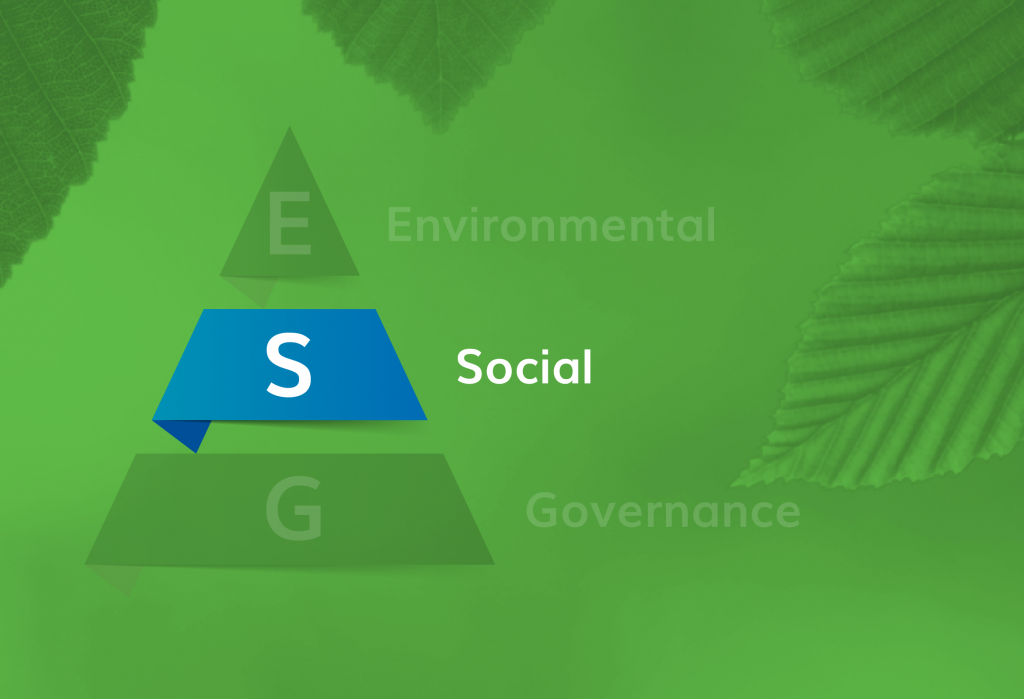ESG Scope & Impact
Create Value Through Social Sustainability

Summary
The social component of ESG centers on relationships. In particular, it addresses how a company manages its relations with its employees, financial stakeholders, the communities in which it operates, and the broader political environment. How adept is the company in recognizing and adapting successfully to social trends, labor movements, or political developments? Social risks and opportunities have direct impacts on a company’s financial performance and public perception as a responsible corporate citizen.
"Minimizing risks with regard to social factors requires the ability to identify relevant issues and proactively assess how they will affect the organization's viability and profitability."Paul Jacobs
Principal Consultant, M&H

Social Themes & Issues
For every action, there is an equal and opposite reaction.
Newton’s third law of motion applies not only in the physical realm, but often at the intersection of business and social interest:
For every business decision, there can be unintended social consequences.
For example, the business decision to cut costs by adjusting sourcing for product materials. On paper, it sounds smart and profitable.
But what are labor conditions like in the new location? Are employees or contractors treated fairly? Do they earn a living wage? Will your company’s sourcing encourage or increase unfair treatment?
Maintaining the balance between social responsibility and profitability requires constant and vigilant self-examination.
The key themes and issues included in most social sustainability assessments are summarized below.
Human Capital
- Labor management
- Human capital development
- Health and safety
- Supply chain labor standards
Product Liability
- Product safety and quality
- Chemical safety
- Financial product safety
- Privacy and data security
- Responsible investment
- Health and demographic risk
Stakeholder Opposition
- Controversial sourcing
Social Opportunities
- Access to communications
- Access to finance
- Access to healthcare
- Opportunities in health and nutrition


Impacts on Business
Ultimately, companies exist to make money. If they don’t, they cannot provide the jobs and social benefits necessary for human survival. However, in today’s world, social responsibility and profitability go hand in hand.
Raising Capital
Social factors increasingly influence the availability of capital. A company that is insensitive to (or is unaware of) the social impacts of their business decisions will not receive the ESG scores necessary to attract investors or progress toward an IPO.
Sales & Market Share
More and more consumers are considering social factors in their purchase decisions. Over time, the market will reward companies that minimize their exposure to social issues. Innovative solutions to social issues may also uncover revenue-generating opportunities in new markets, products, or service lines.
Human Resources
Addressing equity, diversity, safety, and quality of life issues can improve a company’s ability to attract and retain talented employees and boost productivity through increased internal morale and employee engagement.
Product Liability
Proper measures to protect public health and safety in delivering products and services avoids risks such as recalls, penalties, fines, and loss of brand value.
Socially sustainability is a worthwhile investment, both in terms of commercial success and the wellbeing of the people and communities it impacts.
Full-Service Sustainability Consulting
M&H is uniquely qualified to help you manage ESG risks and opportunities, with more than 40 years of consulting experience in a diverse range of disciplines and applications.
If you're ready to discuss your needs, call 281-664-7222 or send a message to sales@mhes.com.
